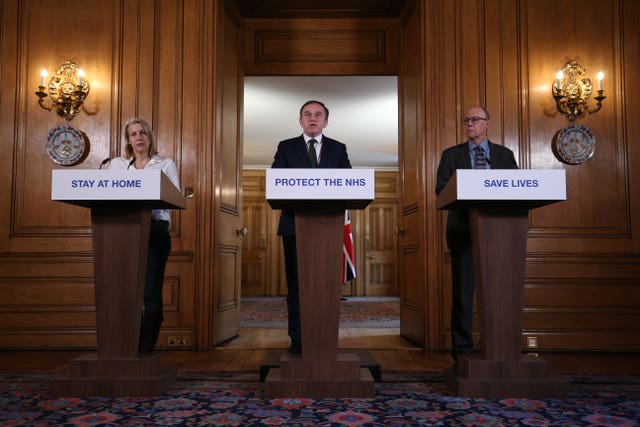Social distancing is your chance to save somebody’s life, medical director urges
Prof Stephen Powis said ‘this is all our problem’ as he urged the young and old to adhere to social distancing to halt the spread of Covid-19.

Sticking to advice on social distancing will “save somebody’s life”, an NHS medical director has said.
In a rallying call to the public, NHS England national medical director Professor Stephen Powis, said that this is “the time in your lifetime whereby your action will save somebody’s life”.
He said that people must do everything they can to socially distance themselves from others to give the NHS the “best possible chance”.
“It is absolutely crucial that everybody in the country follows the guidance that has been given,” Prof Powis said.
“It’s not for somebody else to follow, it’s for you to follow, it’s for me to follow, it’s for everybody to follow. This is all our problem and if we do it together it will be an effective strategy.
“If you follow the advice you are saving somebody’s life.
“This is the time in your lifetime whereby your action will save somebody’s life. It is as simple and as stark as that.”
During the daily Downing Street briefing on coronavirus, Prof Powis said the NHS is “working night and day” to try to increase the capacity of critical care beds.
There have been concerns the UK does not have enough intensive care beds to cope with the number of people who will fall ill, and that the country could end up in a similar situation to Italy, where doctors have been forced to choose which patients get a bed.

Recent footage from inside the main hospital in Bergamo, in the country’s epicentre, showed doctors and nurses rushing between patients in a packed ward, with others on trolleys in a corridor.
New guidelines from the National Institute for Health and Care Excellence have been published to help doctors and nurses know the best course of treatment for patients amid the coronavirus pandemic.
The new guidelines say all patients admitted to hospital should still be assessed as usual for frailty “irrespective of Covid-19 status”.
For those who test positive for the virus, decisions about them being admitted to critical care should consider the medical benefit, taking into account the likelihood of the person’s recovery.
Asked whether doctors are having to make decisions to turn people away, Prof Powis said: “Doctors and other clinicians are very used to having discussions with patients and relatives about treatment choices and frankly our aim is to make sure that we’re in a position to make sure those discussions are as they have always been.
“But the way we will do that is for everybody in society to follow the guidance that the Government has given in reducing social contacts because that will reduce the transmission – the spread of the virus – and will reduce the number of deaths and the pressure on the NHS.
“Yes we are working night and day to increase capacity, but an increase in capacity and reduce in demand – which will come from everybody paying attention, young and old, to the guidance that has been given – will give us the best possible chance that doctors and clinicians can have those discussions in the way that they have always had them.”
The first of Nice’s guidelines on Covid-19 are the fastest ever produced by the body.
They include information on the care of patients in critical care, those having kidney dialysis and people being treated for cancer.
For cancer patients, medics will need to balance the risks of the patient not being treated in the usual way against the risk of them becoming seriously ill through coronavirus due to a weakened immune system, the guidelines state.
Workarounds could include treatment being offered at different locations, patients having longer breaks between treatments, and delivering treatments in different forms, the document adds.
Kidney dialysis patients suspected of having the virus could have their treatment delayed until their test results are known.
The guidance also recommends transport services are checked and alternative arrangements made where necessary, if the normal provider refuses to transport patients confirmed to have Covid-19.
Further updated guidelines are expected in the coming weeks on symptom management, radiotherapy patients, and those with rheumatoid arthritis.




